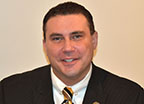Relieving the Plight of Black Male Unemployment

Despite our advances as a country, young men of color continue to face significant challenges. According to the Bureau of Labor Statistics, in 2014 Black men over the age of 20 had an unemployment rate of 10.9 percent compared to 4.4 percent for white males. In urban metropolitan areas, the rates were even higher: 16.6 percent for Black males in St. Louis, 17.2 percent in Chicago and 19.1 percent in Birmingham. Compounded with the fact that Black men often face higher mortality, incarceration rates and lower household income, we have a continuing crisis in the African-American community.
At the time of Michael Brown’s killing, unemployment was at crisis levels. In Missouri, Black unemployment was 15.7 percent in the fall of 2014 – triple the state’s 4.5 percent white unemployment rate at the time. The 2014 State of Black America®: One Nation Underemployed Jobs Rebuild America featured the St. Louis area as having a seven percent equality index in terms of Social Justice compared to the national index of 18 percent. According to the East West Gateway Council of Governments, St. Louis was listed as the sixth most segregated city in the United States amongst its peer cities in terms of education, health, labor market and wealth. With these factors in mind, there is little wonder why Ferguson became the powder keg that sparked demonstrations against police brutality nationwide.
Nationwide, the National Urban League is often viewed as the first responder to any crisis in the Black community. In Ferguson, the St. Louis affiliate immediately began to operate in this role to meet the needs of the Ferguson population and its surrounding counties. While we distributed food, toiletries and utility assistance, we also focused on the prevailing needs of the people for jobs. Hence, from the civil unrest, the Save Our Sons Workforce Development Program (SOS) was born. Entirely funded by private and corporate dollars, the SOS program focused on helping African-American men living in Ferguson and St. Louis County to find viable employment.
In January 2015, the program began, and since that date, we have helped 200 men find and maintain jobs. SOS offers four major tenets of its four-week workforce education program: (1) how to find a job; (2) how to keep a job; (3) how to get promoted; and (4) how to remain marketable in the workplace. We are proud to report that the program had a 99 percent success rate in 2015 among men who were previously unemployed or underemployed. It is also important to note that 55 percent of our SOS participants had prior felony convictions. Additionally, the Urban League of Metropolitan St. Louis will soon open a Community Empowerment Center of Ferguson to house the Save Our Sons program, along with four social service organizations that will offer empowering services to the St. Louis area. While we are thrilled with the success of SOS and other upcoming programs, we believe that programs such as SOS can be scaled across other National Urban League affiliates and across the nation to significantly lower the unemployment rates of Black men in our communities and strengthen African-American families as a whole.
Works Cited:
Table 27. Selected metropolitan areas, metropolitan divisions, and cities: civilian labor force participation rates, employment–population ratios, and unemployment rates, by gender, age, race, Hispanic or Latino ethnicity, and marital status, 2014 annual averages. Bureau of Labor Statistics.
Where We Stand: Racial Segregation and Disparity. East West Gateway Council of Governments. September 2014.


 Equality Index
Equality Index  Senate Report
Senate Report  2020 SOBA Essays
2020 SOBA Essays  2019 Report
2019 Report 